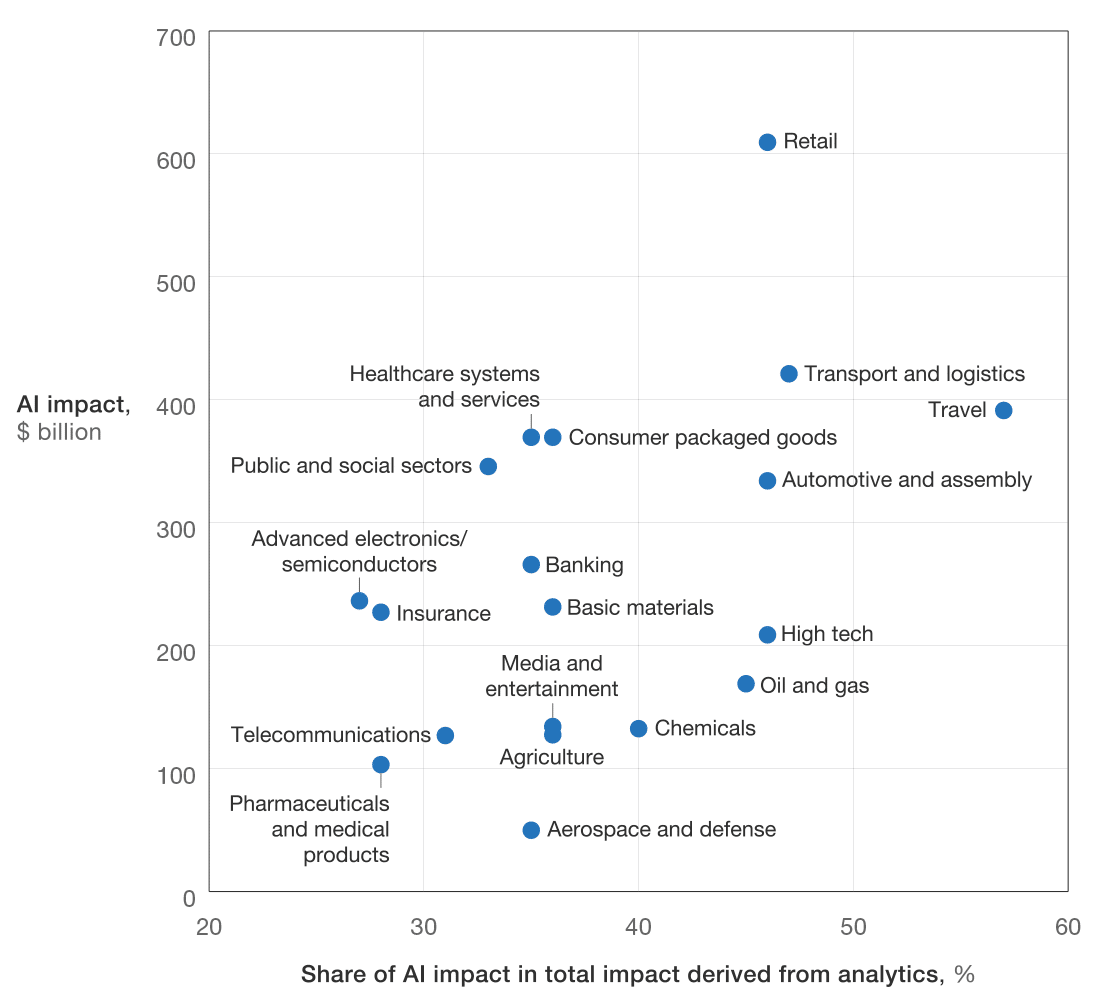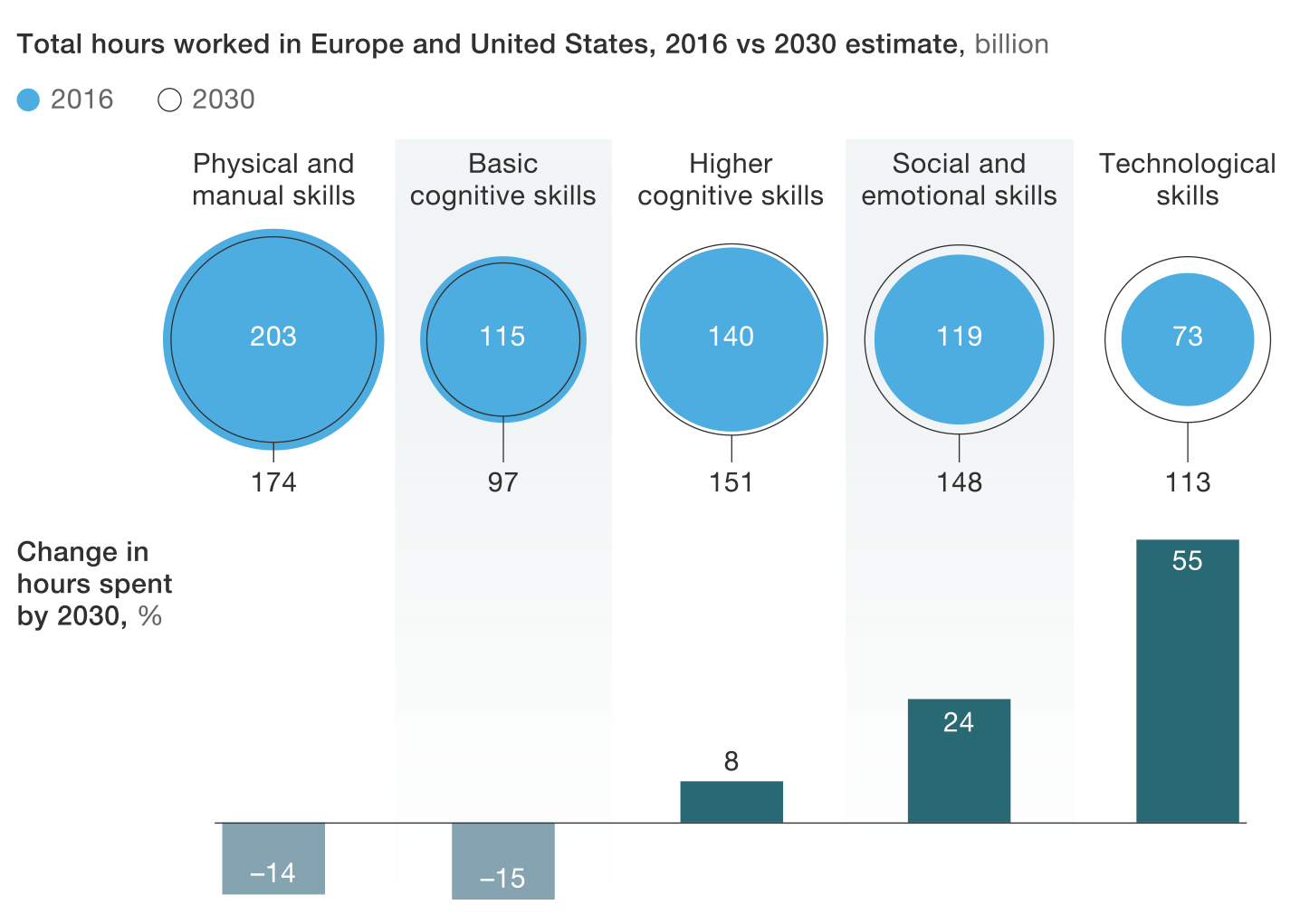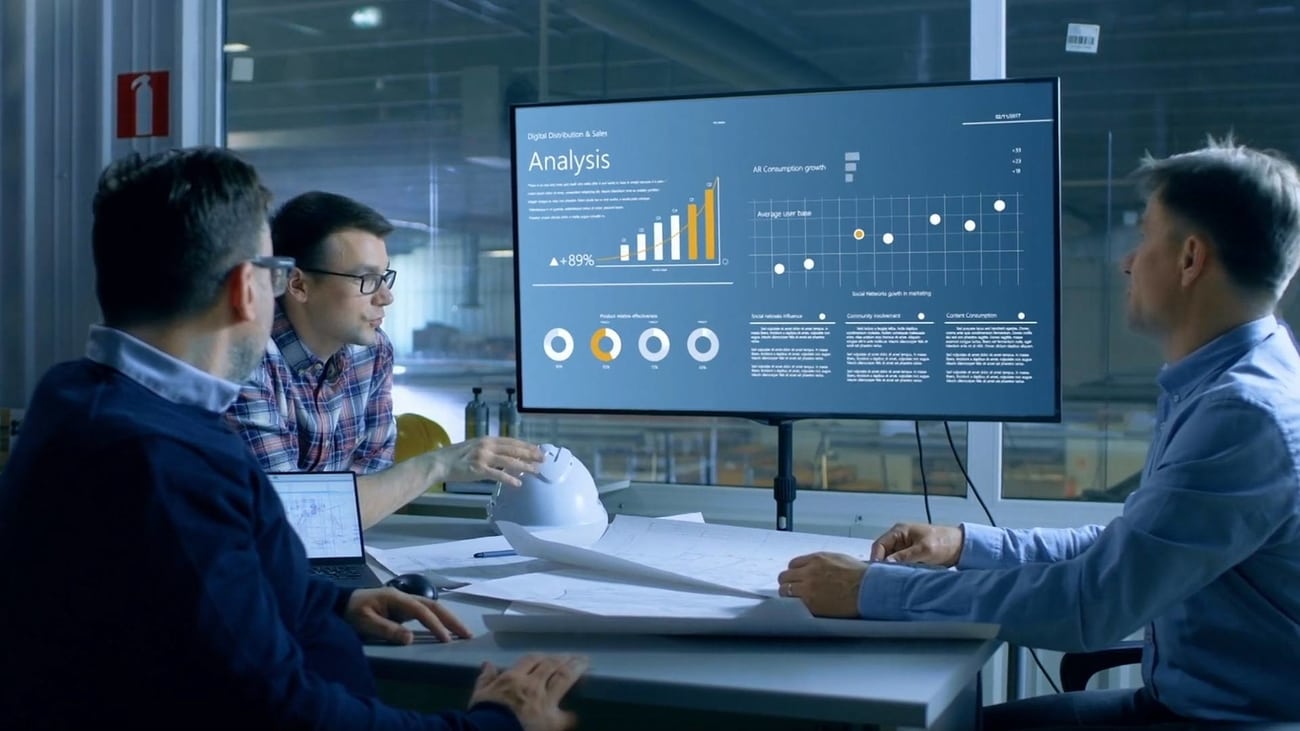Nowadays, we keep hearing talk about various jobs that are about to be automated due to development of such technologies as RPA and artificial intelligence. So let’s think about industries and jobs most susceptible to automation, and how to ensure you can stay employed in this age of digital transformation.
Industries and jobs to be automated
The easiest tasks to automate are those that are regular and repetitive. They require workers to repeat the same set of actions again and again, with little critical thinking and creativity involved. Such tasks can be described as an algorithm, written as a robotic script, and therefore can be effectively performed by robots.
The first companies to jump the automation train are finance-related organizations. Many of their business processes are quite typical and repetitive, involving many copy-paste actions, so banks and other financial organizations, as well as insurance companies, are already replacing manual workers with software robots. Other industries that will follow are likely to be logistics, retail, healthcare and more.
Accordingly, many typical jobs in these industries will be affected, including:
- Research and data entry specialists
- Accountants and accounts clerks
- Tax preparers
- Cargo and freight agents
- Insurers
- Automation trends and jobs
There is no evidence that the automation train is going to slow down anytime soon. Businesses evaluate job automation as an essential contributor to their annual growth. According to the McKinsey briefing notes AI, automation, and the future of work: Ten things to solve for, “advanced deep learning techniques deploying artificial neural networks could account for as much as $3.5 trillion to $5.8 trillion in annual value, or 40 percent of the value created by all analytics techniques.”
Given that trend, how many jobs will survive the age of automation?
The same McKinsey document predicts that nearly half of jobs are vulnerable to automation today. The study of 800 jobs in 46 countries found that by 2030, around 400 million people will lose their jobs due to automation progress. Of course, repetitive manual tasks are most at risk of automation, especially in developed countries. Poorer countries will not be affected as much due to a lack of investment in automation technologies.

However, it is unreasonable to think the impact of digital transformation on jobs will be that devastating. Many studies suggest that, along with taking manual work away from people, automation is going to create new jobs that will require critical thinking by humans. According to a PWC report, by 2037, automation will displace around 7 million jobs, while simultaneously creating 7.2 million new ones. So, the fears of loss of jobs due to automation, while seeming reasonable currently, are likely to be unfounded. It is much more likely to bring about the transformation of the jobs, as did the industrial revolution of the 18th century or the invention of personal computers.
Skills to acquire in the age of automation
As already mentioned above, the effect of automation on jobs’ future has its bright sides. Automation trends and transformations of jobs open opportunities for people to learn new skills and choose more creative and diverse work. There is a distinct set of skills and qualities people have that a robot cannot offer:
- Data analysis
- Critical thinking
- Communication skills
- Empathy
- Creative approaches
- Improvisation
- Technological skills
Widespread digital transformation and artificial intelligence will accelerate the shift in skills that the workforce needs.

Thanks to automation, jobs are going away from an approach of “do this one task every day, all day” to more strategic roles that require more critical thinking.
Many jobs that require human interaction and critical, empathetic thinking cannot be automated. Jobs that have a low probability of being automated include social worker, therapist, or university professor. It’s virtually impossible to see a robot doing that.
It is also worth saying that partial job automation (or task automation) will become more prevalent than total automation as robots will complement human labor rather than replace it. For example, artificial intelligence will be able to read patient scans and tests with a higher degree of accuracy than humans and help doctors diagnose illness and identify correct treatments — but we will still need doctors. It will help increase efficiency in the spheres that are prone to human error and allow people to concentrate on their core competencies.




























